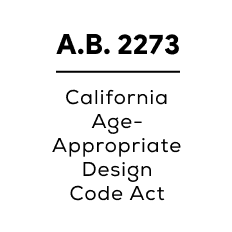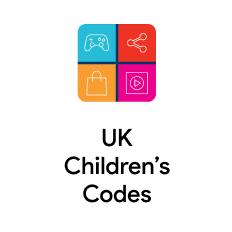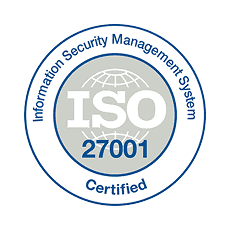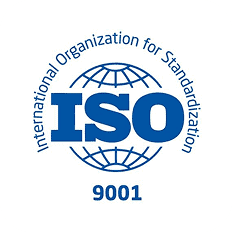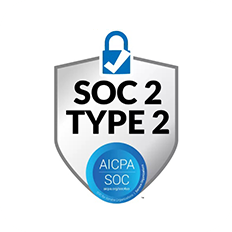Introduction
PrivateID is built for seamless, interoperable identity authentication with complete privacy at its core. Its edge-based architecture and patented tokenization ensure biometric data never leaves the device, enabling scalable, compliant, and frictionless authentication across industries.
FaceFirst provides a SaaS “visual intelligence”/face matching platform used heavily in retail loss prevention and public-safety–adjacent scenarios. It delivers real-time alerts, investigative search, reporting, and governance features for multi-site retailers and venues.
1. Architecture
PrivateID: Performs 1:1 biometric matching directly at the device edge. Biometric data and PII remain securely on the device, preserving privacy while eliminating data breach risks and simplifying global compliance.
FaceFirst: Cloud-first platform with options for cloud or on-premises deployment and integrations with VMS/cameras via API—designed to operate across thousands of stores as a centralized service.
2. Privacy & Tokenization
PrivateID: Uses patented Homomorphic Tokenization, transforming biometrics into irreversible, anonymized tokens. Tokens are unique, cannot be reverse-engineered, and are IEEE 2410 compliant and therefore do not incur global biometric privacy law obligations under GDPR, CCPA, BIPA and HIPAA. No biometric images or templates are transmitted.
FaceFirst: States it is “private by design,” generates a proprietary and anonymous biometric template not correlated to PII, and provides guidance on encryption, purging, human verification, and face redaction to support responsible handling. (Customers remain responsible for compliance.)
3. 1:1 vs 1:N Matching
PrivateID: Uses patented homomorphic tokenization to transform biometrics into irreversible, guaranteed unique, fully anonymized tokens for 1:N while performing 1:1 at the edge.
•1:1: Edge-based, no network transmission.
•1:N: Only anonymized tokens are transmitted; enables bandwidth-light (~1 KB/token) constant-time lookups (~5 ms) regardless of gallery size.
FaceFirst: Supports real-time watchlist/“known threat” identification and alerting across distributed locations with confidence-ranked results and investigative search; server-side galleries are typical in FaceFirst deployments.
4. Multi-Modal Biometrics
PrivateID: Supports facial, voice, palm image, and fingerprint biometrics; can combine with passkeys and additional risk signals (geolocation, Wi-Fi sniffing, device fingerprinting).
FaceFirst: Product portfolio centers on face matching and video analytics for retail loss prevention and safety. Other biometric modalities are not core to the FaceFirst platform.
5. Liveness Detection (PAD)
PrivateID: On-device, advanced anti-spoofing against photos, masks, and deepfakes without transmitting data.
FaceFirst: Public materials emphasize human verification and governance in alert review pipelines; FaceFirst does not publicly detail PAD algorithms to the same extent as vendors who publish liveness benchmarks. Organizations should confirm PAD/liveness capabilities and certification levels during evaluation.
6. Scalability & Efficiency
PrivateID: Unlimited scalability with consistent performance. A 5 MB image is reduced to ~1 KB token. Constant performance regardless of gallery size.
FaceFirst: Built for large retail networks with “network effect” operations across thousands of stores; provides cloud and on-prem options and emphasizes low ownership cost and reduced bandwidth/hardware needs relative to
traditional deployments.
7. Accuracy
PrivateID: Delivers 99.999% accuracy across unlimited gallery sizes. (NIST FRVT leader)
FaceFirst: Markets high accuracy and speed for real-time alerting and forensic search in retail and venue settings; like most cloud/server-based FR systems, accuracy and latency depend on image quality, gallery scale, and infrastructure.
8. Compliance & Security
PrivateID: Processing is performed at the edge (1:1) or through patented Homomorphic Tokenization (1:N) and does not incur global privacy obligations under GDPR, CCPA, HIPAA, and BIPA (annually certified to IEEE 2410). No biometric data is stored or transmitted.
FaceFirst: Provides trust and governance materials (purging, encryption, redaction, human verification) and a data processing addendum; customers must implement compliant practices for biometric data and watchlist usage.
9. Deployment & Integration
PrivateID: Lightweight SDK/API for rapid integration across IAM, healthcare, retail, and finance. Software-only; runs on general-purpose hardware (desktop, mobile, POS).
FaceFirst: Offers API integrations with VMS and high-quality cameras; built to slot into existing retail tech stacks and multi-site camera networks.
10. Ethics & Trust
PrivateID: Purpose-built for user-consented, privacy-preserving identity verification.
FaceFirst: Focus on retail safety and loss prevention with human-in-the-loop oversight. The company has publicly engaged in privacy discussions in the U.S. policy context; enterprises should evaluate watchlist governance, consent, and regional legal requirements.
11. Cost & Total Cost of Ownership (TCO)
PrivateID: Edge processing and tokenization reduce bandwidth, compute, and storage costs by orders of magnitude; minimal infrastructure.
FaceFirst: Cloud SaaS (with on-prem option) plus storage/egress and gallery management; pitched as low ownership cost for retailers due to reduced hardware and bandwidth compared with legacy approaches. Actual TCO scales with store count, alert volume, and retention policies.
12. Latency & User Experience
PrivateID: Consistent ~100 ms processing ensures real-time authentication without user delays, even at massive scale.
FaceFirst: Designed for real-time alerts to field staff and efficient forensic search; end-to-end latency depends on capture quality, network, and server processing at scale.
13. Deployment Flexibility
PrivateID: Operates fully at the edge for 1:1 and hybrid edge-to-server for 1:N with tokenization; cloud/on-prem/hybrid with no vendor lock-in.
FaceFirst: Provides cloud and on-premises deployment choices and supports multi-site rollouts; matching and alerting are typically server-side
14. Ecosystem & Interoperability
PrivateID: Easily integrates with IAM, MFA, Passkeys, and risk-based authentication systems. Standards-based (IEEE 2410, FIDO2) interoperability supports enterprise and consumer use cases.
FaceFirst: Built to integrate with retail camera/VMS ecosystems and operational workflows; not positioned as a standards-based IAM/passkey platform out of the box.
15. Bias & Fairness
PrivateID: Tokenization removes demographic markers from biometric data, reducing the risk of bias and improving fairness across populations.
FaceFirst: Provides governance guidance and human verification processes; does not claim demographic-neutral tokenization. Buyers should assess dataset composition, watchlist policies, and fairness testing aligned to regional regulation and corporate ethics.
16. Business & Market Positioning
PrivateID: Positioned for enterprises, healthcare, finance, and retail requiring privacy-first, compliant, and scalable biometric solutions.
FaceFirst: Strong presence in retail loss prevention and safety; deployed across major U.S. retailers and grocery banners with emphasis on proactive threat mitigation and investigations.
Summary
PrivateID provides a privacy-first biometric platform that performs 1:1 matching at the device edge and leverages patented homomorphic tokenization for 1:N searches. This design ensures biometric data never leaves the device, delivers constant-time performance and multi-modal authentication, while inherently meeting global privacy standards and reducing infrastructure costs.
FaceFirst delivers a cloud (or on-prem) face-matching platform focused on retail safety and loss prevention, with real-time alerts, investigative tools, and governance features. While powerful for multi-site retail operations, its server-centric model means biometric templates are processed within centralized services and customers bear responsibility for legal compliance, data governance, and watchlist ethics.









